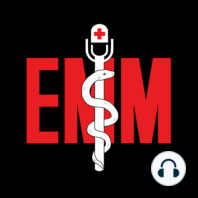4 min listen

Opioid MIniseries Part IV: Harm Reduction
Opioid MIniseries Part IV: Harm Reduction
ratings:
Length:
49 minutes
Released:
Jun 8, 2017
Format:
Podcast episode
Description
PRACTICE RECOMMENDATIONS 1. Patients who abuse opioids should be managed without judgement; addiction is a medical condition and not a moral failing. Caregivers should endeavor to meet patients “where they are,” infusing empathy and understanding into the patient/medical provider relationship. 2. Every emergency clinician should be well-versed in the safe injection of heroin and other intravenous (IV) drugs, and understand the practical steps for minimizing the dangers of overdose, infection, and other complications. When treating patients with complications of IV drug use, injection habits should be discussed and instruction should be given about safe practices. 3. Emergency department patients who inject drugs should be referred to local syringe access programs, where they can obtain sterile injection materials and support services such as counseling, HIV/hepatitis testing, and referrals. 4. Emergency departments should provide naloxone to high-risk patients at discharge. If the drug is unavailable at the time of release, patients should receive a prescription and be informed about the over-the-counter availability of the drug in most Colorado pharmacies. 5. Emergency clinicians should be familiar with Colorado’s regulations pertaining to naloxone. State laws eliminate liability risk for prescribing the drug, encourage good samaritan reporting of overdose, and make naloxone legal and readily available over the counter in most pharmacies. 6. Emergency department patients who receive prescriptions for opioids should be educated on their risks, safe storage methods, and the proper disposal of leftover medications. POLICY RECOMMENDATIONS 1. Harm reduction agencies and community programs that provide resources for people who inject drugs (PWID) should be made readily available. 2. When local programs are unavailable for PWID, emergency departments should establish their own programs to provide services such as safe syringe exchanges.
Released:
Jun 8, 2017
Format:
Podcast episode
Titles in the series (100)
Wound Care Myths: Tap water and regular (non-sterile) gloves. by Emergency Medical Minute